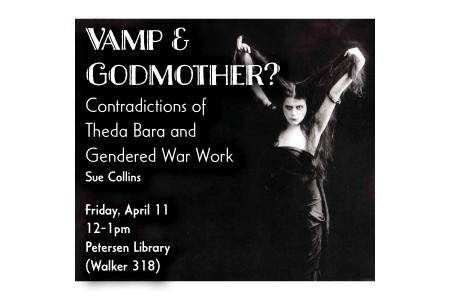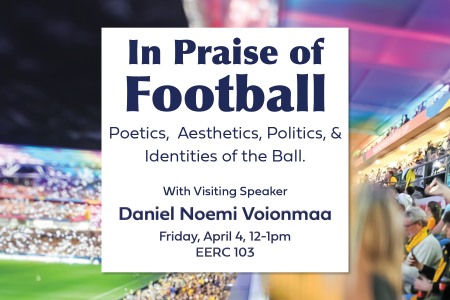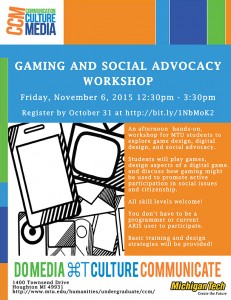What:
Abstract:
This talk focuses on the peculiar case of Theda Bara, a Hollywood actress who became famous for her ethnic-Other “vamp” movie character and public persona. In 1918, Bara was appointed “Godmother” to the 158th Infantry Regiment from Arizona. The practice of godmothering had started early in World War I but was prohibited in France and Britain after 1915 due to suspicions of sexual misconduct between women and their “godsons,” as well as fears about its potential for espionage. When the U.S. intervened in 1917, godmothering was discouraged by the Department of War, with exceptions made for female screen idols who offered government officials a useful mechanism by which to help promote troop morale and the will to fight. Bara’s promiscuous, even adulterous persona, however, ostensibly threatened conventional morality among men and women, and the “wholesome” model of “soldier-citizen” the camps aimed to cultivate among the men. Accordingly, her films were banned in the training camps. I explore the logic of Bara as godmother through an analysis of Hollywood’s star system in the 1910s and how its discursive construction of stardom intersects with Foucault’s discussion of discourse and sexuality.
Who:
Presented by Sue Collins, Associate Professor of Communication, Culture, and Media.
All are welcome to attend!
When:
Friday, April 11 2025
Where:
Petersen Library, Walker Arts & Humanities Center


